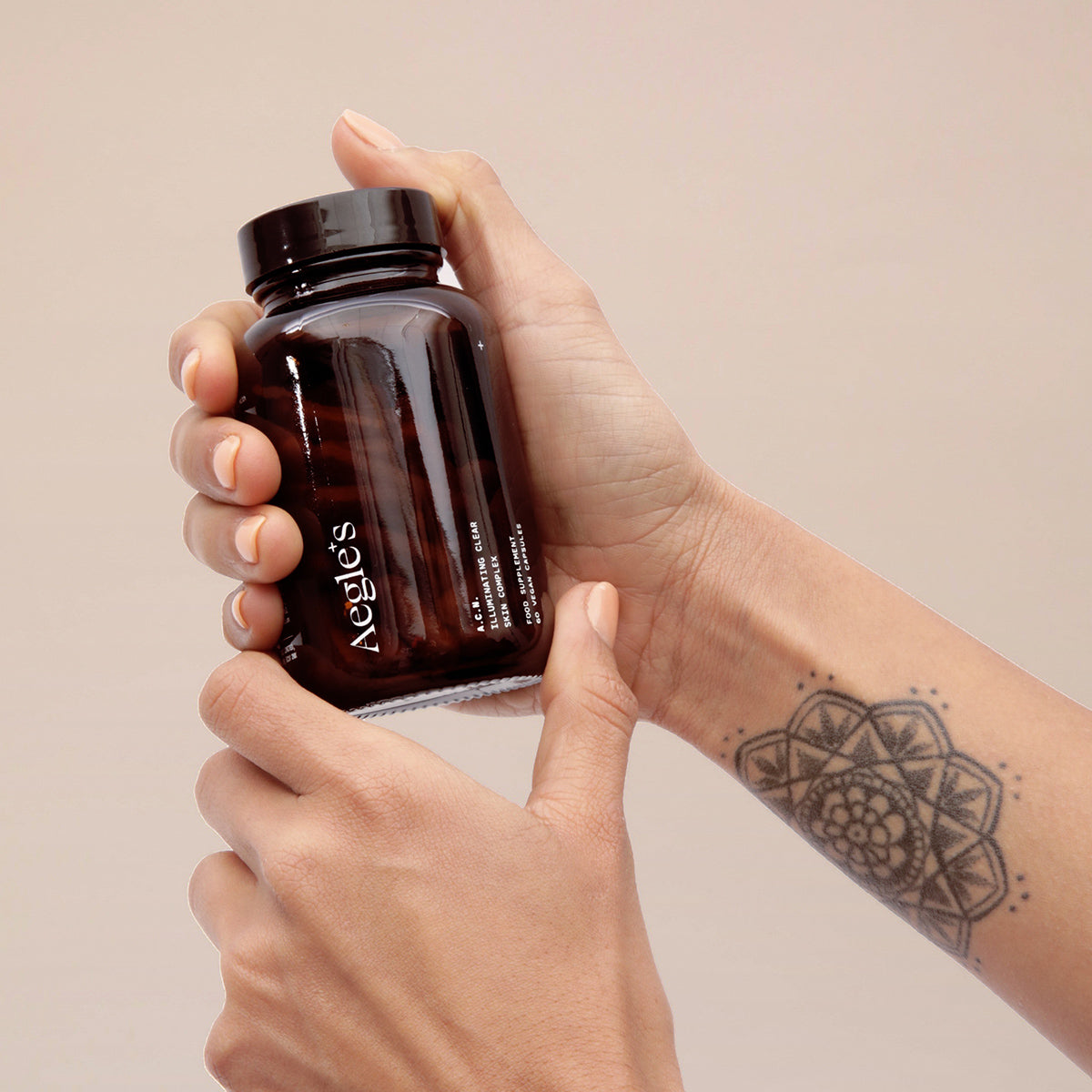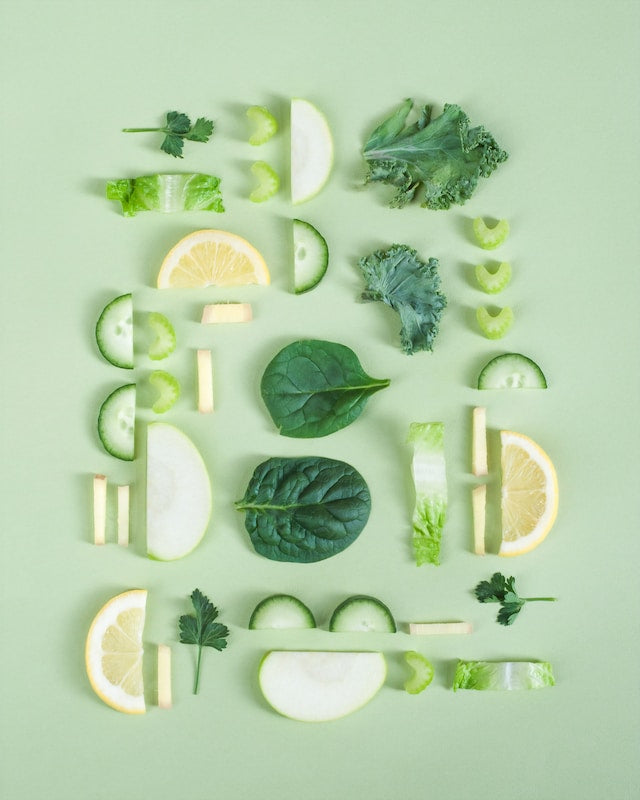Accutane is considered to be the most effective pharmaceutical treatment for clearing all severities of acne. But how does it actually work? And why do some women prefer to opt for natural alternatives instead of taking Accutane?
What is Accutane?
Accutane is the brand name for the drug isotretinoin (also known as 13-cis-retinoic acid), which is a form of retinoid derived from Vitamin A.
Isotretinoin is also a chemotherapy drug used to prevent and treat certain skin cancers such as neuroblastoma, but it is more famously known for its use in the treatment of acne.
Accutane is taken orally in a capsule form, once or twice a day with the dosage depending on body weight.
This medication has strong adverse reactions, so in most circumstances a medical professional will first try the use of other acne pharmaceuticals (such as antibiotics) for the treatment of the acne, before recommending Accutane. It is kind of a “last resort” medication and more commonly prescribed in the more severe cases of acne, because of its strong potential adverse effects.
How does Accutane work?
The exact mechanism of action of isotretinoin is not known. However, several studies have shown that it promotes cell death in the sebaceous glands. This results in less sebum production and therefore less inflammation and acne lesions.
Another study has indicated that isotretinoin increases the production of neutrophil gelatinase-associated lipocalin (NGAL) in the skin, which then reduces sebum production by up to 90%. Acne is always a result of excess sebum production, so by suppressing the sebum production, the skin clears.
A more recent study revealed that Accutane also shifts the microbiome of the skin to more closely resemble that of a person with normal, healthy skin. In this shift the skin becomes less hospitable to acne-causing bacteria.
The typical amount of time to take Accutane is a period of four to six months.
Will acne come back after Accutane?
Typically the skin will continue to improve (if it hasn’t completely cleared already), for up to eight weeks after the use of Accutane is discontinued.
Some people find that after one round of Acutane their acne does not return. However others find that their acne returns usually with the same severity. This is because the root cause as to why the person is getting the acne has not been addressed and rebalanced. So the acne is still manifesting.
The only way to prevent the acne from returning by utilising this type of symptomatic treatment, is for the sebaceous glands of the skin to permanently shrink and reduce sebum production. The downside of this more permanent alteration of the skin, is that sebum is what keeps the skin looking plump and youthful, as well as adding a layer of protection to the surface of the skin. So there are strong benefits of sebum production.
If the acne does return after the first round of Accutane, it is normal for a further course to be administered. The second and any future courses will usually have a shorter time period of treatment.
The history of Accutane
Isotretinoin was first studied in the 1960’s as a skin cancer treatment. By 1971 the studies had concluded that the drug was likely to be ineffective at treating skin cancer, but it was instead discovered that it is highly effective at clearing acne.
This should have been great news, however isotretinoin had also shown in studies to cause birth defects. So the study was abandoned until 1979 when it was reopened and the studies continued.
To this day Accutane is known for its ability to cause birth defects, so great caution needs to be taken with women of childbearing age when they take the drug. In some countries it is mandatory to take birth control in conjunction with Accutane to ensure the woman does not get pregnant whilst she is using Accutane. They also must not get pregnant for one month after discontinuing the drug.
Further adverse effects of Accutane
The dominant action of Accutane in terms of clearing acne is the suppression of sebum production in the sebaceous glands (by up to 90%). It’s for this reason that it is also most commonly known for the adverse effect of excessively dry skin and slips, itchy skin and dry eyes.
In addition to birth defects and excessive drying of the skin, Accutane has the following common adverse effects:
- Anaemia
- Thrombocytopenia
- Thrombocytosis
- Blepharitis
- Conjunctivitis
- Dry eyes and eye irritation
- Rash
- Itchy skin
- Skin fragility
- Myalgia
- Back pain
- Joint pain
- Suppressed immune system
- Loss of night vision
- Hypothyroidism
- Headaches
- Depression
Can these adverse effects be minimised?
Self care steps can be taken in order to help to minimise adverse effects. These include:
- Taking Accutane with a meal that contains fats.
- Taking the medication at about the same time each day.
- Avoiding the consumption of grapefruit juice.
- Avoiding the use of contact lenses (if the adverse reaction of dry eyes manifests).
- Drinking lots of water to keep the body and skin hydrated.
- Using a soft toothbrush.
- Driving with caution at night if experiencing loss of night vision.
- Avoiding sun exposure and wearing a sunblock.
- Keeping alcohol to a minimum.
Why some women choose not to take Accutane
There are some women who choose not to take Accutane due to its strong adverse effects on the body, and the potential birth defects if a pregnancy does occur.
Some women also prefer to treat their acne by addressing the root cause and the imbalance in the body that is causing the acne. For example, it may be that the woman’s diet is too high in sugars, dairy and simple carbohydrates, which is causing an imbalance in the body. By taking supplementation to help to balance her blood sugar, in conjunction with eating a healthy and more balanced diet, she’ll be correcting the root cause of her acne, clearing her skin and improving her health.
The danger with treating acne symptomatically with a pharmaceutical is the underlying root cause and imbalance in the body will remain. This can lead to further health complications later on in life.
In conclusion
Accutane is a highly effective treatment for clearing all severities of acne, and in some cases permanently. However, the adverse effects can be extreme, and the treatment is not addressing the underlying root cause and imbalance in the body that is causing the acne.
Start your journey to heal your skin now.

Start your journey to heal your skin now.
- Contains ingredients clinically proven to improve blemishes and skin radiance.
- Formulated by one of the world's leading skin practitioners.
- The only supplement that works for the three main causes of blemishes, blackheads and oily skin.
Discover more articles
- Choosing a selection results in a full page refresh.






